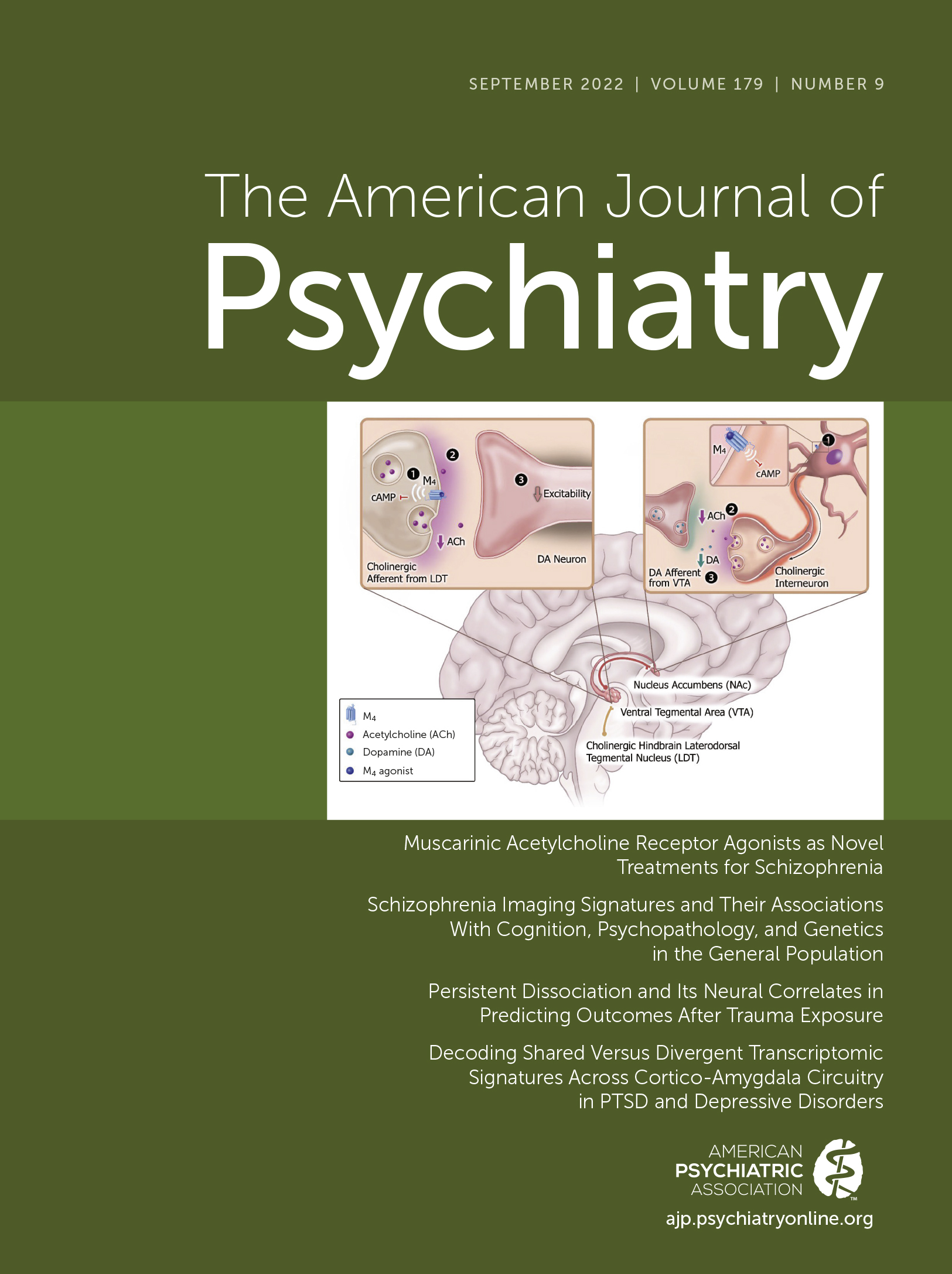Persistent Dissociation and Its Neural Correlates in Predicting Outcomes After Trauma Exposure
Abstract
Objective:
Dissociation, a disruption or discontinuity in psychological functioning, is often linked with worse psychiatric symptoms; however, the prognostic value of dissociation after trauma is inconsistent. Determining whether trauma-related dissociation is uniquely predictive of later outcomes would enable early identification of at-risk trauma populations. The authors conducted the largest prospective longitudinal biomarker study of persistent dissociation to date to determine its predictive capacity for adverse psychiatric outcomes following acute trauma.
Methods:
All data were part of the Freeze 2 data release from the Advancing Understanding of Recovery After Trauma (AURORA) study. Study participants provided self-report data about persistent derealization (N=1,464), a severe type of dissociation, and completed a functional MRI emotion reactivity task and resting-state scan 2 weeks posttrauma (N=145). Three-month follow-up reports were collected of posttraumatic stress, depression, pain, anxiety symptoms, and functional impairment.
Results:
Derealization was associated with increased ventromedial prefrontal cortex (vmPFC) activation in the emotion reactivity task and decreased resting-state vmPFC connectivity with the cerebellum and orbitofrontal cortex. In separate analyses, brain-based and self-report measures of persistent derealization at 2 weeks predicted worse 3-month posttraumatic stress symptoms, distinct from the effects of childhood maltreatment history and current posttraumatic stress symptoms.
Conclusions:
The findings suggest that persistent derealization is both an early psychological and biological marker of worse later psychiatric outcomes. The neural correlates of trauma-related dissociation may serve as potential targets for treatment engagement to prevent posttraumatic stress disorder. These results underscore dissociation assessment as crucial following trauma exposure to identify at-risk individuals, and they highlight an unmet clinical need for tailored early interventions.



